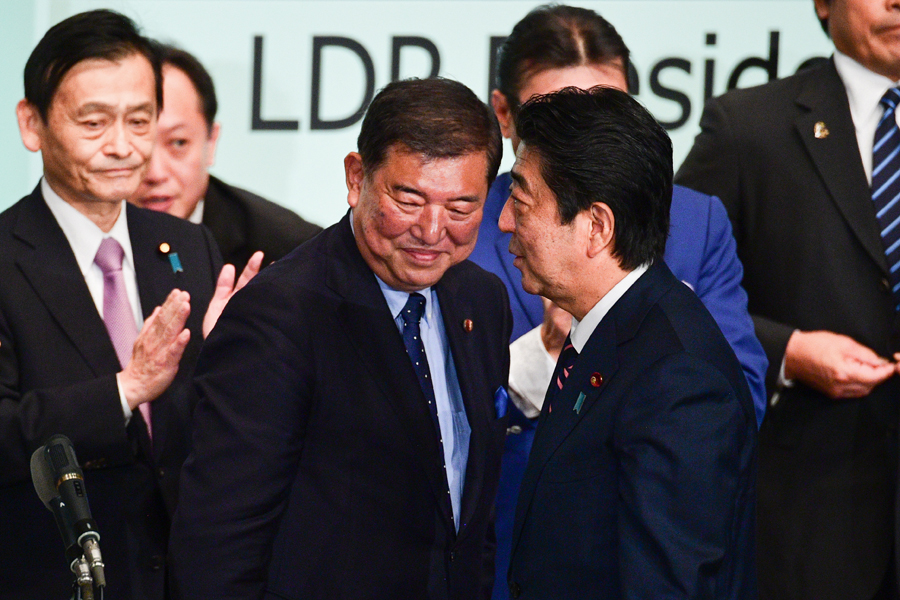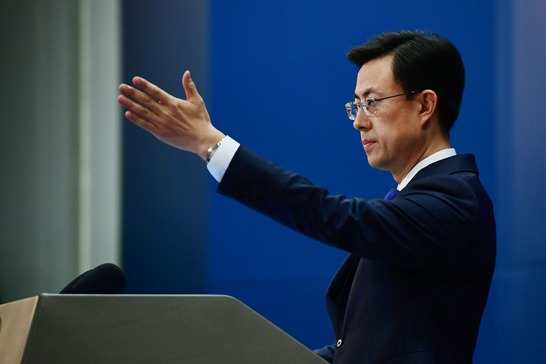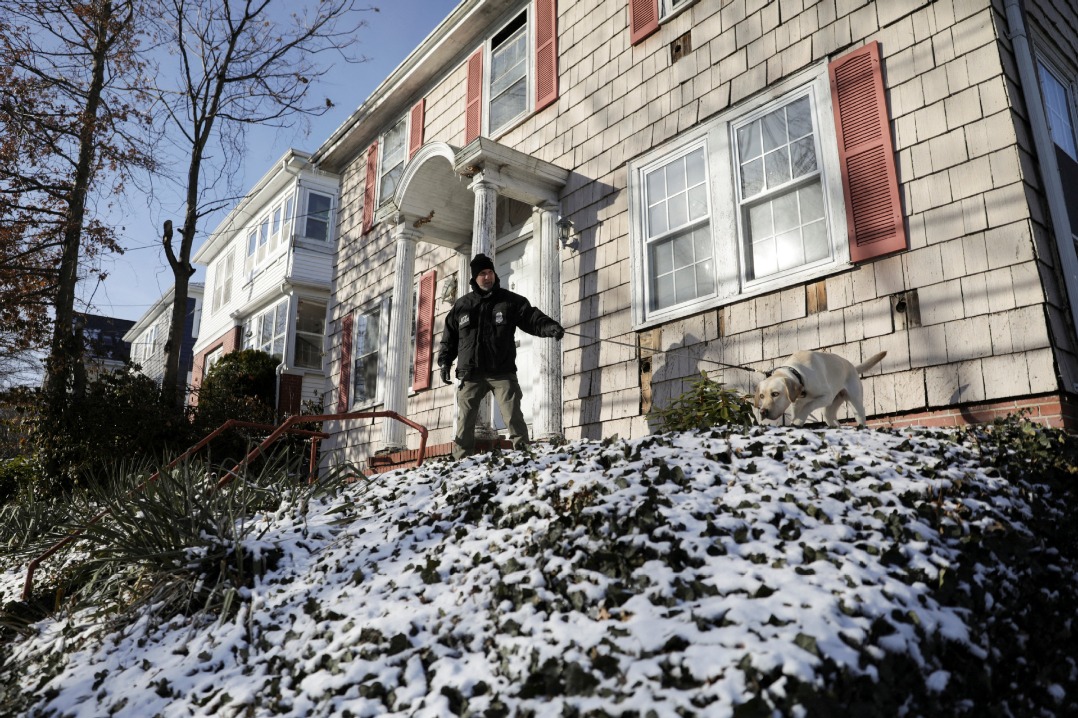Abe aims to create 'new nation' after sealing third term


Japanese Prime Minister Shinzo Abe, who turns 64 on Friday, won the ruling Liberal Democratic Party's presidential election on Thursday, securing a third consecutive term as the party leader.
Responding to the news of Abe's re-election at the regular press briefing in Beijing on Thursday, Foreign Ministry Spokesman Geng Shuang said China hopes that Abe will continue to attach importance to relations between the countries and push forward the continuous improvement and development of the ties.
Abe grabbed 553 votes, compared with 254 ballots for his 61-year-old rival Shigeru Ishiba. They competed for 810 votes-one half from some 1.04 million party members and the other half from the party's members in parliament, or Diet.
The LDP decided last year to extend the term limit on party leaders to three consecutive three-year terms from the previous two consecutive three-year terms. Abe's new term will run for three years, until September 2021. The victory on Thursday put Abe on track to become Japan's longest-serving prime minister.
Abe was the prime minister and LDP president between 2006 and 2007. He defeated Ishiba in the LDP presidential election in 2012 and was re-elected without a vote in 2015.
At the press conference after the election, Abe said he will work to create a new nation for the sake of the people and take the challenge of revising the Constitution. Amending the postwar Constitution, including the war-renouncing Article 9, is a longtime political goal of the conservative party and of Abe.
He has urged the LDP to submit its own proposals for revision to the extraordinary Diet session that is expected to be convened this fall.
The Constitution can only be revised if approved by a two-thirds vote in both houses of the Diet and a simple majority in a national referendum.
Abe has won several national elections largely thanks to his Abenomics economic policies, which are centered on ultra-loose monetary policy and aggressive fiscal spending and his blueprint for bolstering defense.
Many economists have questioned the sustainability of radical monetary-easing by the Bank of Japan, which has now been buying massive amounts of government bonds and stocks from the market for more than five years.
Last year, opinion polls found the support rate for Abe's cabinet fell significantly due to two separate school operator cronyism scandals, one involving Kake Gakuen and the other Moritomo Gakuen.
But the approval rate has bounced back in recent months, helped by unpopular opposition parties that have criticized Abe over the favoritism scandals but failed to propose any alternative economic and welfare policies.
































